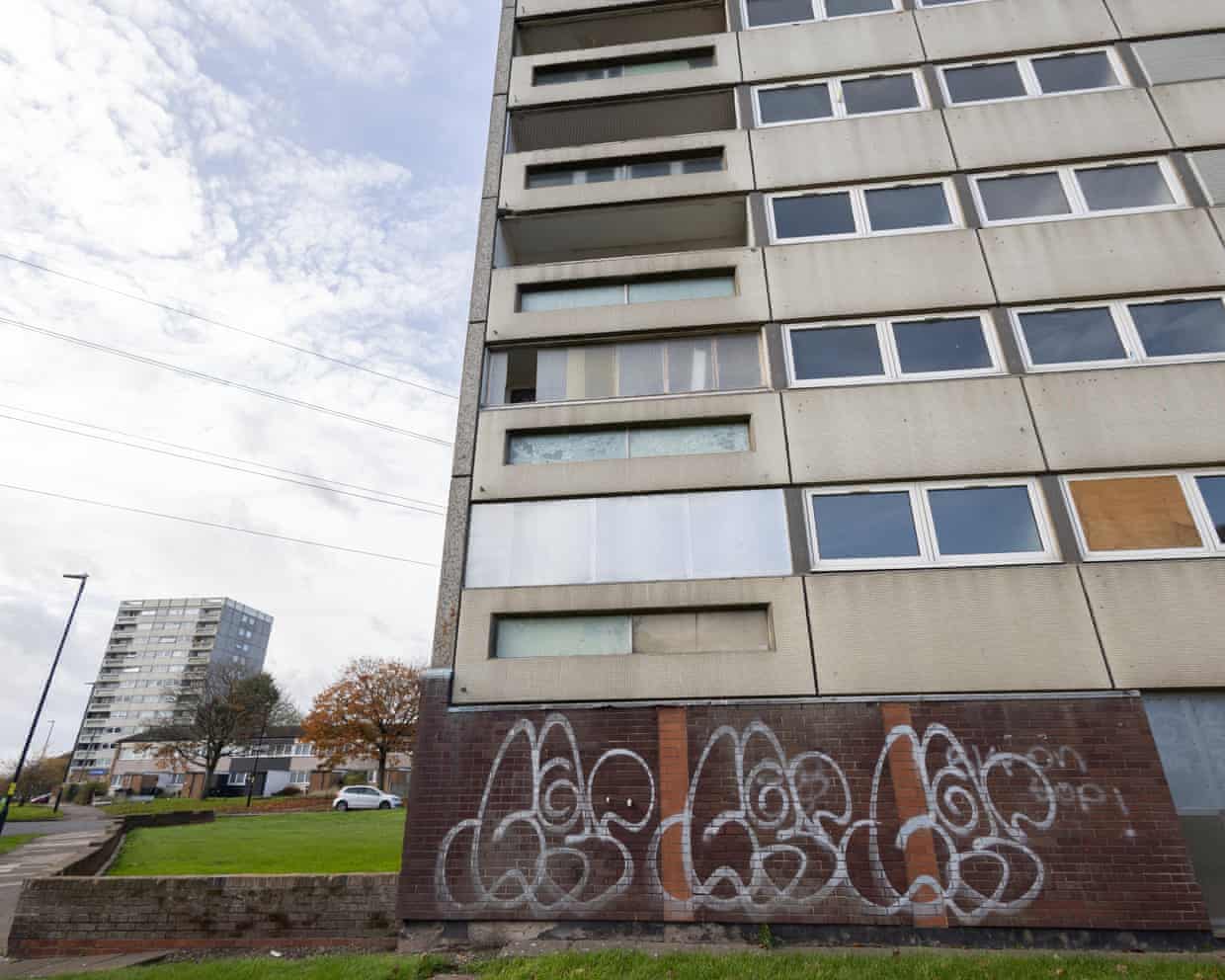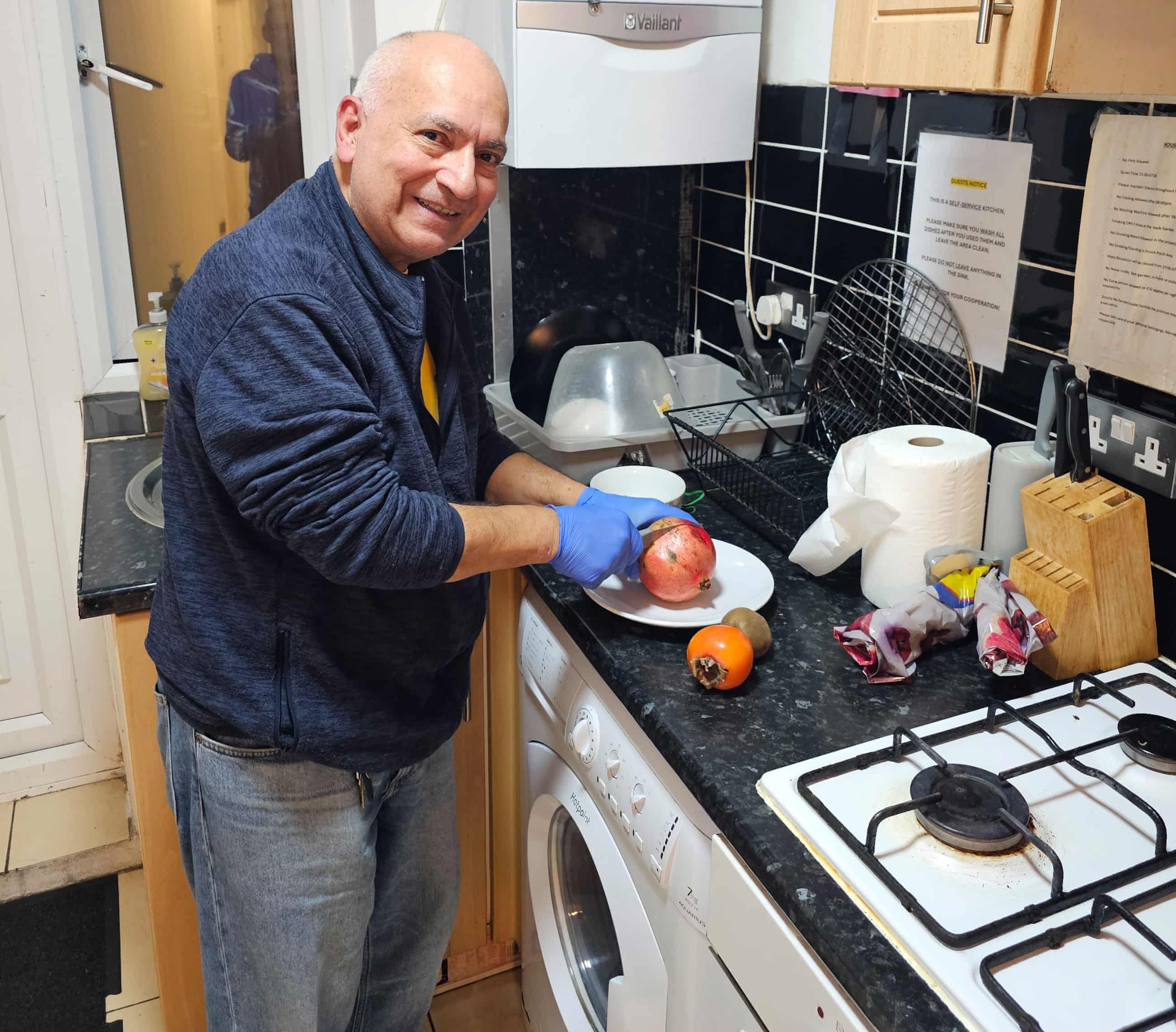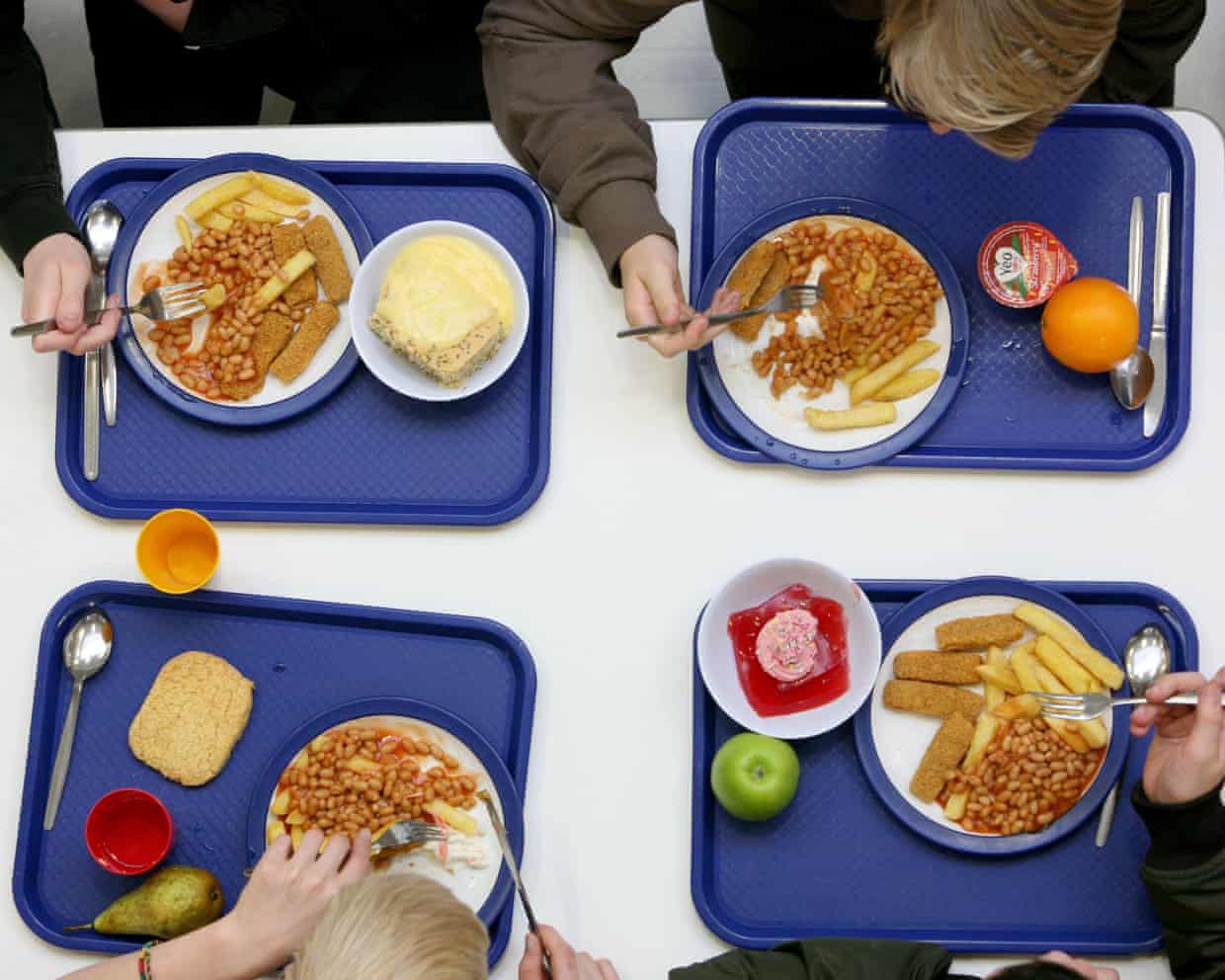‘Are you building communities or just houses?’: human cost of Birmingham council’s plans for Druids Heath estate

Xylia Legonas was just a few years off fully repaying her mortgage and had just finished refurbishing her house after a fire when someone knocked on her door in 2023 and asked if she was aware of the Druids Heath regeneration project.“The first thing I thought: ‘Don’t tell me you’re going to knock my house down’,” she recalled.“He basically said yes and I thought: ‘What am I going to do? Where am I going to go?’”After years of discussions, councillors have now approved planning permission to knock down most of Druids Heath, a postwar housing estate on the southern edge of Birmingham, to create higher density housing.In total, 1,800 homes will be demolished to make way for 3,500 new ones, 400 (11%) of which will be designated as affordable, according to the planning documents – 800 fewer than there are now.This was the main point of contention at the planning committee meeting in which dozens of Druids Heath residents crammed into the room and adjoining corridor to voice their anger – shouts of “these are our homes” and “it’s not enough” could be heard throughout.
In the end, the committee was split and the application was narrowly approved by a majority of just one vote.The council insists it is committed to ensuring there will eventually be 1,785 affordable homes created through a partnership agreement with the developer and Homes England, and that the 400 already approved will be for social rent, although the planning documents do not specifically state this.“The scheme will not go ahead without those remaining affordable homes being delivered,” Nicky Brennan, the cabinet member for housing and homelessness, said.But residents are concerned that outline planning permission has been granted without this set in stone and are worried the promise may be reneged down the line due to financial pressures.“There’s a lot of ‘potentially’ and ‘in the future’.
‘We hope’ does a lot of heavy lifting,” said Corin Ennis, who lives with his girlfriend and two-year-old son in the house they bought seven years ago.Back then only the nearby 13-storey tower blocks were earmarked for demolition – then the red line was extended to encompass a much larger area.All affected homeowners have been offered market value plus 10% for their properties, which for Ennis equates to £180,000 for his three-bedroom home.“With the best will in the world, £180k is not going to touch the sides of what these new houses are going to cost,” he said.“We’re not going to be able to really buy anything for that in Birmingham.
I don’t know what to do; it feels like whatever we do, it’s the wrong option.”Residents say the council has offered shared ownership options for homeowners who want to return, but many – especially those who own their homes outright – aren’t keen on the idea.“They’ve moved the goalposts so many times, so why would I trust that information that they’re giving me?” said Legonas, who previously worked as a live-in carer and has returned to college to study welding.“My plan was to be rent-free, mortgage-free, and just me and my daughter.“For me to afford something of my own now I’d have to move out of Birmingham, but my family is here and I like it in Druids Heath.
There’s a reason why I bought my house up here.I like the air.It’s not like down in the city where the air feels thick.”Druids Heath sits on one of the highest points in Birmingham, making it colder and windier than the rest of the city.It is also home to the most deprived part of the city, and the area has barely been touched since it was built in the 1960s, when it was the biggest industrialised housing scheme in the UK.
Almost all residents agree change is needed, and some welcome the chance to move away.Others feel they haven’t been consulted.“Everyone says Druids Heath has been underinvested in and that’s why this needs to happen.But who has underinvested? The council.The government.
The people up there, not the people living here,” said Rita Patel, one of more than 1,200 council tenants in the area.She has an accessible two-bedroom property that she has specially adapted over the 16 years she has lived there.“I agree something needs to happen.But I don’t think that all of the properties need knocking down.”She has been told all council tenants who wish to remain in the area will be given somewhere new to live under a right-to-return scheme, but her house is in one of the final phases of the project, meaning she has about 15 to 20 years to wait.
“I could be living here in a building site for a very long time, with the looming thought of eventually having to move,” she said.“My life is getting harder as I’m getting older – 10 years ago I had a lot more energy than I do now.So it’s going to be a massive upheaval for me.“I’m finding it really, really scary – the reality of it for the people here.”Jayne Murray, the lead artist at a Druids Heath arts centre who has helped campaign on the issue, said: “Investment is a completely different thing to demolition.
It is really extreme and harmful.“It’s so shortsighted.They’re doing it all over the city; it’s not just here.They’re just not valuing what’s here and the people who are here.”Other areas including Ladywood, Digbeth and the city’s markets are all earmarked for large-scale demolition as part of regeneration plans.
At the heart of people’s concerns in Druids Heath is what “affordable” really means when it comes to the new houses,The government’s push to build rapidly, and the new housing secretary’s decision to cut affordable housing targets in the capital to get things moving, have done nothing to ease fears,Patel said: “The attitude is: ‘We just need to get this through,’ And I’m guessing some of that comes from central government,Whatever happens in London, it filters down.
“What are you building? Who are you building it for? And are you building communities or are you just building houses?”

‘Are you building communities or just houses?’: human cost of Birmingham council’s plans for Druids Heath estate
Xylia Legonas was just a few years off fully repaying her mortgage and had just finished refurbishing her house after a fire when someone knocked on her door in 2023 and asked if she was aware of the Druids Heath regeneration project.“The first thing I thought: ‘Don’t tell me you’re going to knock my house down’,” she recalled. “He basically said yes and I thought: ‘What am I going to do? Where am I going to go?’”After years of discussions, councillors have now approved planning permission to knock down most of Druids Heath, a postwar housing estate on the southern edge of Birmingham, to create higher density housing.In total, 1,800 homes will be demolished to make way for 3,500 new ones, 400 (11%) of which will be designated as affordable, according to the planning documents – 800 fewer than there are now.This was the main point of contention at the planning committee meeting in which dozens of Druids Heath residents crammed into the room and adjoining corridor to voice their anger – shouts of “these are our homes” and “it’s not enough” could be heard throughout

Ultra-processed foods may help explain rising bowel cancer in under-50s, study suggests
Women under 50 who have a diet high in ultra-processed foods (UPFs) stand a greater risk of having abnormal growths in their bowel that can lead to cancer, research suggests.Ultra-processed foods are typically defined as industrially produced products that are often ready-to-eat, contain little in the way of whole foods, fibre and vitamins, and are typically high in saturated fat, sugar, salt and food additives.While the concept is not without controversy, not least around whether all UPFs are unhealthy, studies have suggested such foods are associated with a host of health problems, from higher risk of heart disease to early death.Now researchers say women who have a greater intake of UPFs have a greater risk of the early onset of a common type of bowel polyp known as conventional adenomas.Dr Andrew Chan, the lead author of the study based at Massachusetts General hospital in the US, said the study was prompted by an effort to understand what was driving rising rates of bowel cancer in younger people

Council staff visited wrong address day before Sara Sharif’s murder, review finds
Services in Surrey failed to identify that Sara Sharif was at risk of abuse, did not question unexplained bruising, and staff members visited the wrong address the day before her murder, a safeguarding review has found.Sara, 10, was killed by her father, Urfan Sharif, and her stepmother, Beinash Batool, in August 2023 after years of escalating brutality that left her with bruises, burns, human bite marks and at least 25 fractures.She was found dead in a bunk bed at the family home after her father fled to Pakistan, leaving a handwritten note saying he had “lost it”.A child safeguarding practice review, commissioned after Sara’s murder, revealed that on 7 August, the day before Sara was killed, the council’s home education team attempted to carry out a home visit but went to the family’s old address.The mistake was spotted when staff returned to the office, but a rescheduled visit wasn’t due to take place until September

The rapid rise of renters in their 60s: ‘I hate the idea of house-sharing – but I have no choice’
It is often assumed that people of retirement age will no longer have housing costs to cover. But for a significant and growing group, this is far from the caseNow that she is retired, Deborah Herring’s days are hers to fill – usually with leisurely walks, museums and trips to the theatre. But she still manages to spare a thought for her ex-colleagues at the private boarding school where she taught religious studies for 14 years. “In their nice, expensive Oxfordshire village, I think they’d be frankly horrified about my situation,” she says with a laugh.Horrified that a few weeks ago she came home to find two strangers asleep on her sofa; horrified that she has to put up with an overflowing litter tray belonging to a cat that isn’t hers; above all, horrified that at the age of 65, she is about to leave a two-bedroom flatshare to move into a four-bedroom one where she will “probably be living with people whose combined age is less than my own”

Deaths linked to antibiotic-resistant superbugs rose 17% in England in 2024
The number of deaths linked to superbugs that do not respond to frontline antibiotics increased by 17% in England last year, according to official figures that raise concerns about the ongoing increase in antimicrobial resistance.The figures, released by the UK Health Security Agency, also revealed a large rise in private prescriptions for antibiotics, with 22% dispensed through the private sector in 2024.The increase in private prescribing is partly explained by the Pharmacy First scheme, a flagship policy of Rishi Sunak’s government that allows patients to be prescribed antibiotics for common illnesses without seeing a GP, raising questions about whether the shift in prescribing patterns risks contributing to the rise in resistance.“Antibiotic resistance is one of the greatest health threats we face,” said the UKHSA’s chief executive, Prof Susan Hopkins. “More people than ever are acquiring infections that cannot be effectively treated by antibiotics

High blood pressure rates in children nearly doubled in 20 years, global review finds
The rate of children and teenagers living with high blood pressure globally has nearly doubled because of a toxic combination of unhealthy diets, mass inactivity and soaring levels of obesity, according to the largest review of its kind.Experts said 114 million children who have developed hypertension even before reaching adulthood were facing potentially deadly and lifelong harm, including cardiovascular disease, kidney disease and a myriad of serious health complications.The prevalence of high blood pressure in children and teenagers under 19 has increased to 6.2%, rising from 3.2% in the space of just 20 years

US markets struggle amid tech sell-off and economic uncertainty

Atom is prematurely split in the ‘golden age’ transatlantic partnership | Nils Pratley

AI slop tops Billboard and Spotify charts as synthetic music spreads

UK firms can win a significant chunk of the AI chip market | John Browne

Eli Katoa’s playing future uncertain as recovery from head impacts, seizures and brain surgery continues

Donald Trump’s granddaughter Kai in last after 83 in shaky LPGA debut